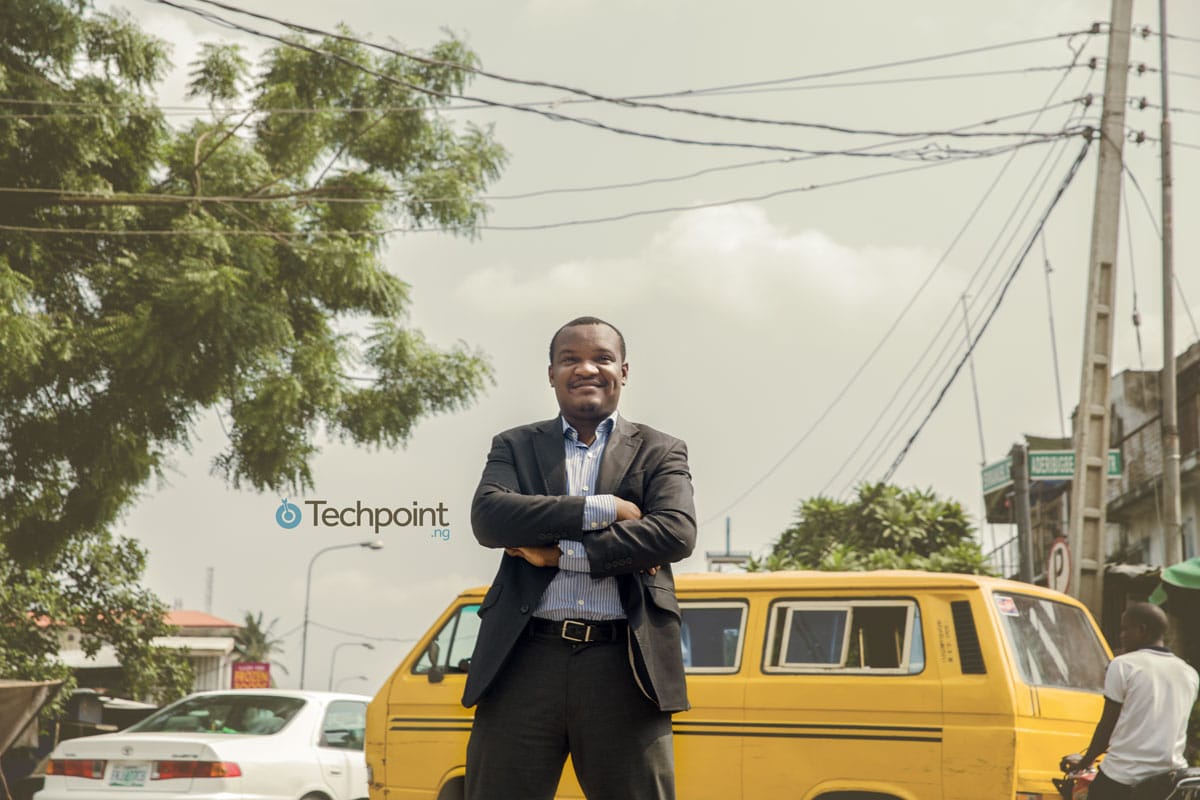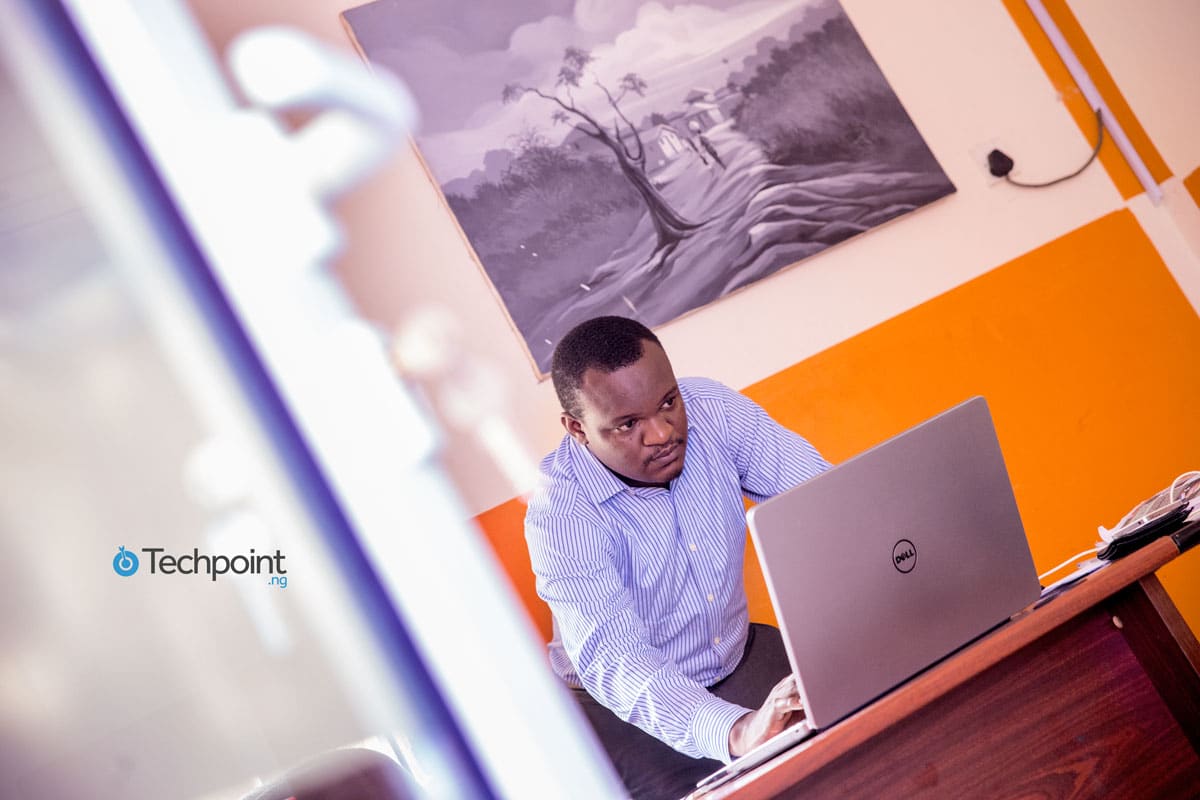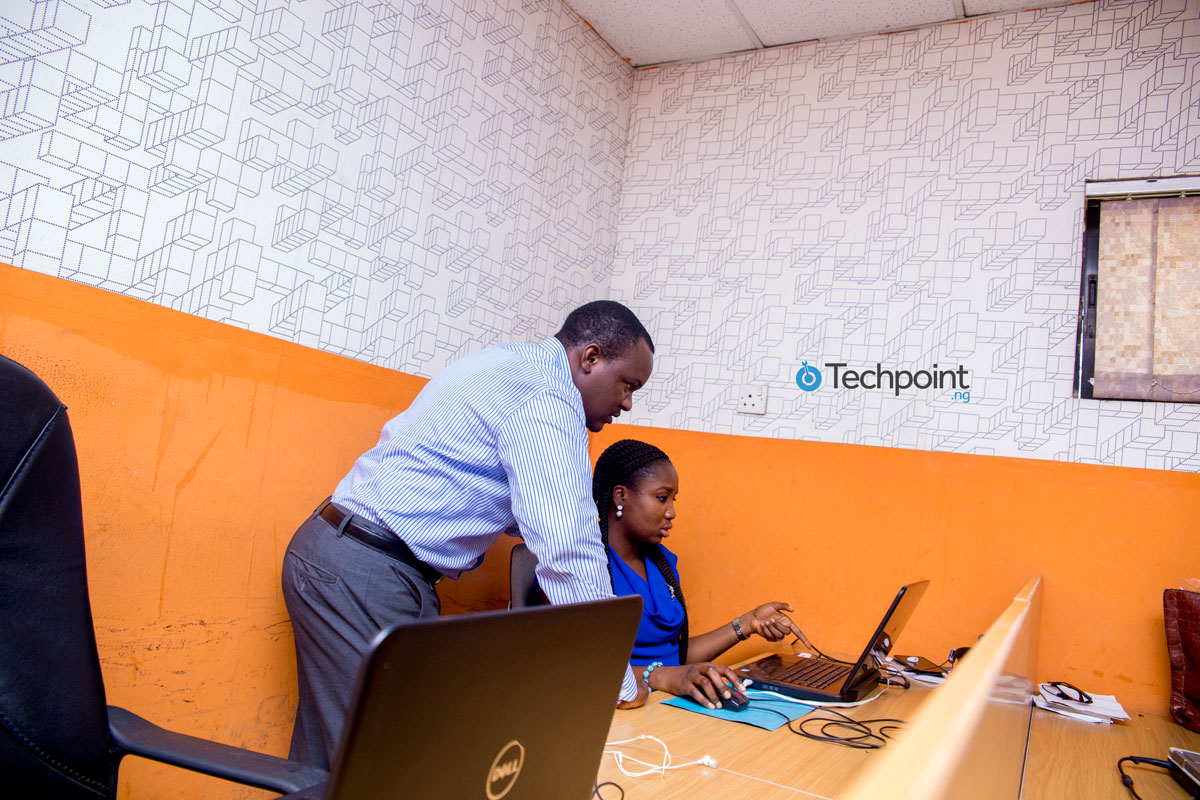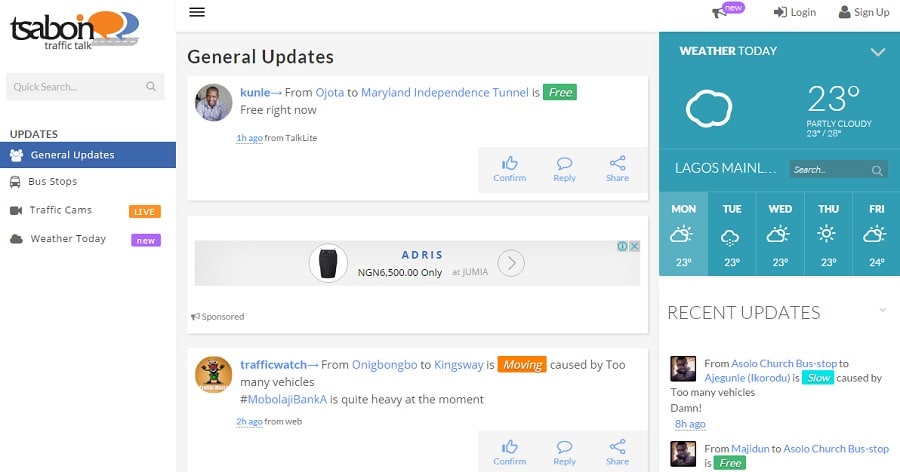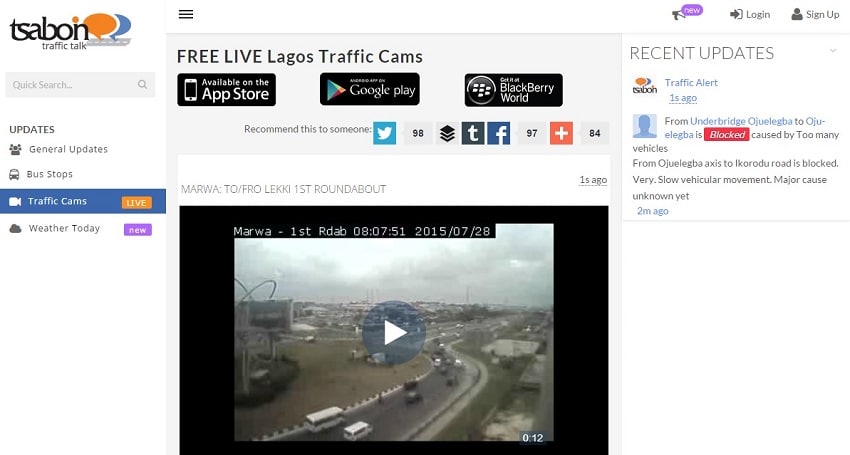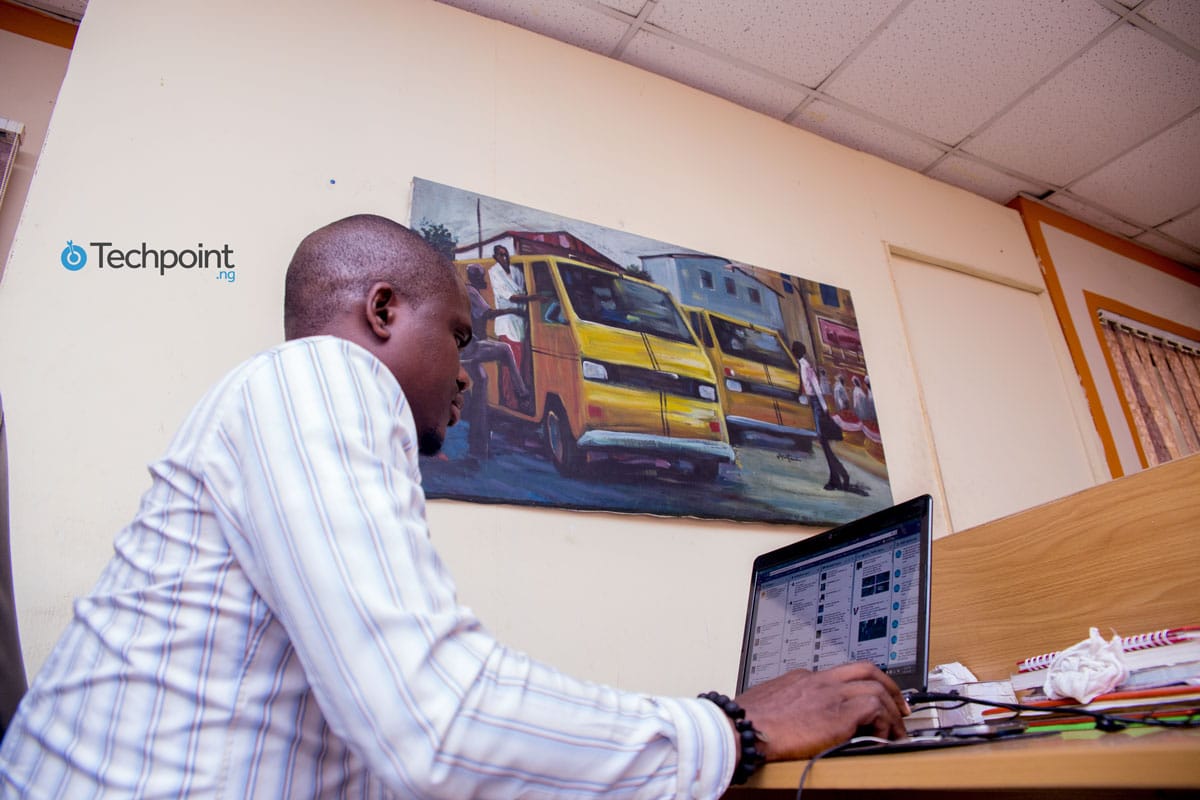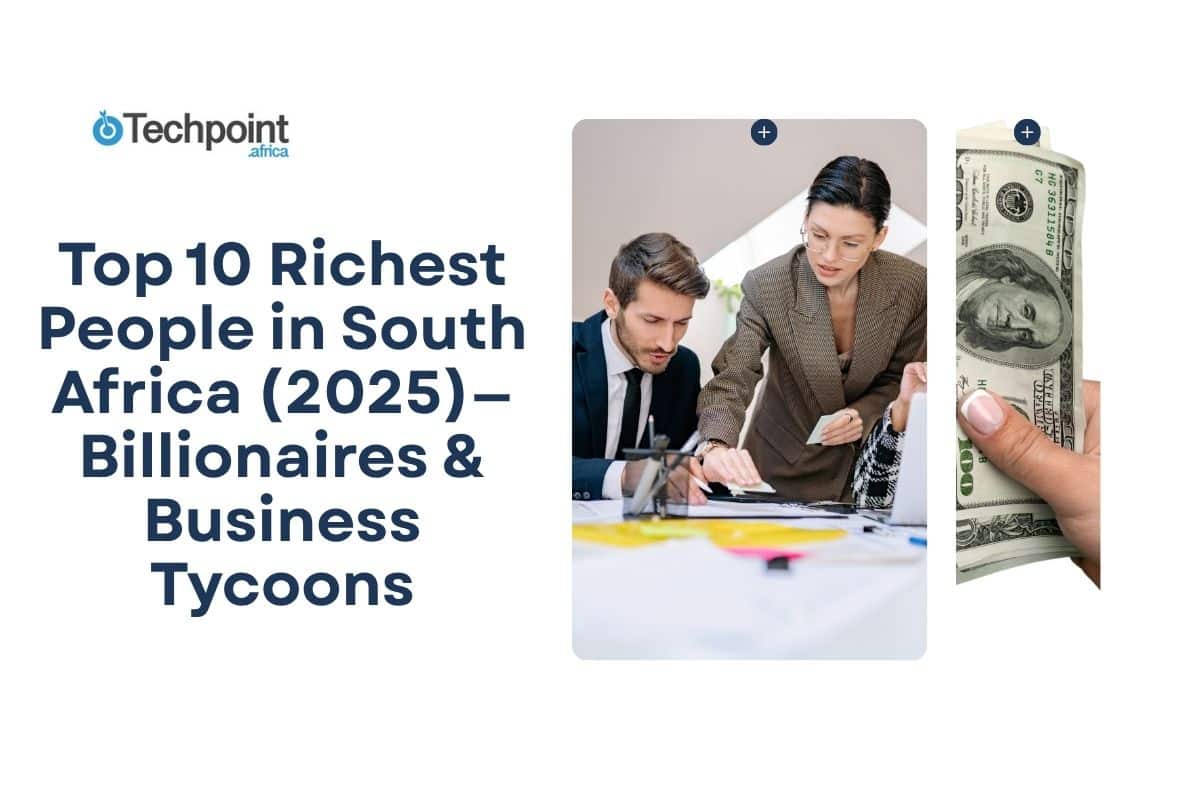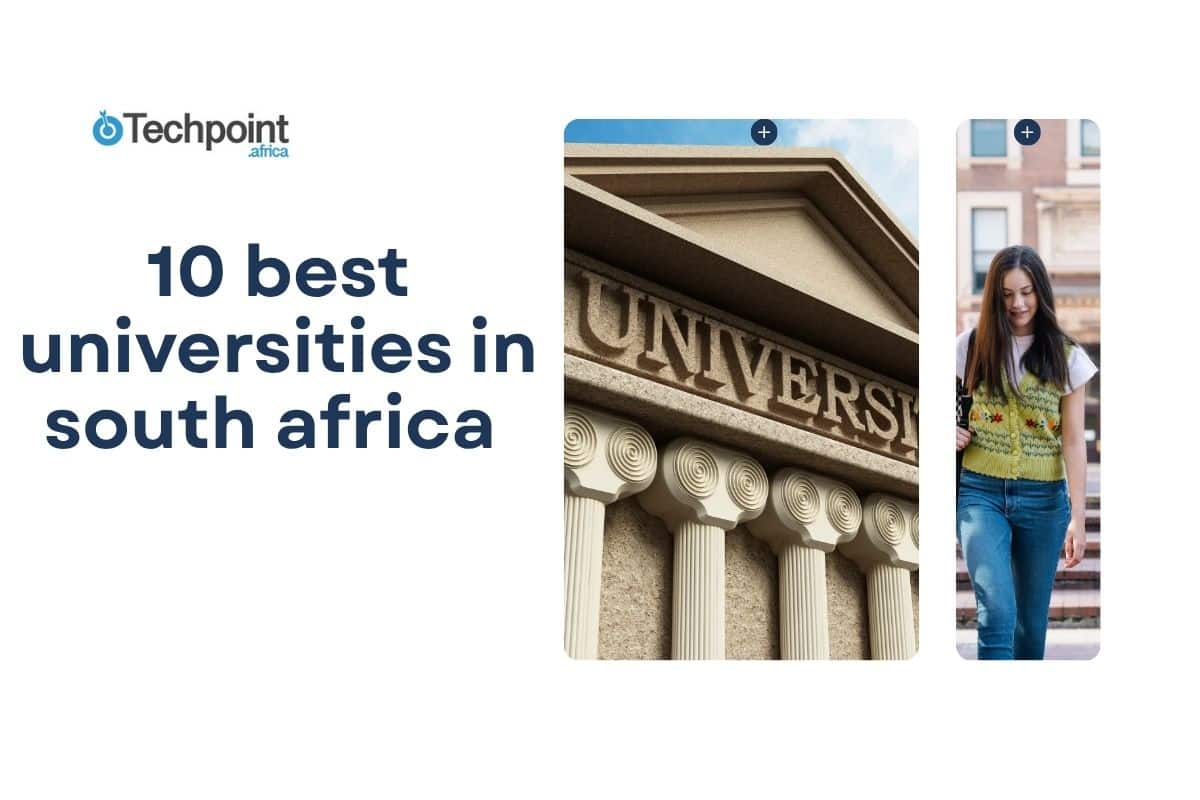Lagos, a city of over 22 million people, is inevitably plagued by outrageous traffic jams. Beyond the tons of time and productivity being lost everyday on the mean streets of Lagos, businesses and lives are being lost too. But one man -Dele Odufuye – an his team have created a uniquely Nigerian technology solution to help Lagosians make smarter decisions about traffic.
Techpoint spent an afternoon chatting with Dele Odufuye about his foray into tech, the inspiration for Tsaboin Traffic Talk and the future of Big Data in Nigeria.
Could you tell us a bit about your educational and professional background?
My name is Dele Odufuye. I am a graduate of Environmental Management and Toxicology, University of Agriculture Abeokuta. I started my company in 2005, right after I graduated from university. I was quite interested in my hobby, which is Information Technology, so I decided to pursue that rather than my academic degree. So as a profession, I am a Software Developer. I started out as a programmer working in a couple of organisations, while still an undergrad, before setting out to build my own company.
How did you get into tech?
When I was in JS3, my secondary school added Computer Science as one of the courses the school offered. That would be around ’94/’95. Being the Computer Department prefect, I was in charge of the computer lab. That was where the interest in computer programming started. I got exposed to GW-BASIC , then I moved on to QBasic. Afterwards, I continued on to upper levels. By the time I was rounding up with secondary school, my parents had bought us a computer of ours. Having access to a computer of your own as early as ’97 was tremendous exposure. Rather than playing games, I and my younger brother preferred writing code.
If you loved computers so much, why didn’t you study Computer Science at the university?
Personally, I have an entrepreneurial spirit and I don’t like wahala. I knew that studying Computer Science in the university would require that I took Mathematics. As an entrepreneur I needed to share my time between school and business. But to do well in Mathematics, you need to devote your morning, afternoon and night to constant practice. If you are unable to do that, you should be ready to have an extra year. I wasn’t ready for that, so I opted rather to go in for a course which I was equally interested in – Toxicology – one that I could pick up a book a day to the exam and still ace my exams.
I also understood that you didn’t really have to study Computer Science in school to know how to use a computer. I knew a time was coming when computers would become basic to whatever career path you chose. Why would I go to the university to study what I would have to know normally?
How did you manage to get hired as software developer, while still an undergrad? How were you able to juggle that with studies?
Some of the programs you see us running today were born when I was in the university. One of my earliest projects was a job board site which I wrote when I was in 100 level, around year 2000. It was originally in PHP but had to be rewritten in Perl because the free hosting platform I was using then didn’t support PHP. I also built a course registration platform, among other things. These are the projects I presented when I was looking for a job as an undergrad. You have to remember that there weren’t many Nigerian websites at the time. So most of these projects were conceived in solitude. I decided I needed to get a real job because I felt there was nothing else left to challenge me.
Someone connected me with the CEO of a Lagos-based company contracted to build a CMS for Vmobile – there was no WordPress at the time. They had gotten burnt by many incompetent developers in the past so the CEO was very impressed by that fact that I had actual completed websites that he could visit right there. Needless to say, I got the job. Because I was still a student, I convinced them to hire me as a consultant, rather than a monthly salary staff. I didn’t have much experience then so I thought the N 250,000 I got paid for the job was a good deal. This was in 2003 and 250k was a lot of money. I found out later the company was paid millions for the project. But for me I was really happy with the 250k. Till date I and that company are in a good relationship as I became a frequent consultant for that company.
However, my entrepreneurial pursuits took a serious toll on my studies, which I largely regret. I missed a lot of classes and tests, I usually came in at the last minute for exams. If I had my way, I wouldn’t have mixed school with work.
Was this around the time you started Tsaboin. Or did you have another venture before that?
Before I joined the organisation in question, I had set up a computer training school in my house. I was teaching people Oracle and Web Development. The school was called Tsaboin; so it has always been Tsaboin. Just before I graduated I registered Tsaboin as a business name and in the same month I graduated, I incorporated with CAC. That was in 2005. Soon I got my first job to build and intranet application for a bank. By the time I was going for my service year, I already had a couple of friends join in as programmer staff.
How easy was it starting up?
It was neither easy nor difficult. The current business was born out of a need for a good programmer in a particular organisation. I already started the training institute but I knew there was something big for me in Lagos. I took the job because it was going to be massive exposure for me. For that, I was ready to push my company to the background while I learnt a lot about the environment and business with the company I worked for. For the 3 years I worked with them, I didn’t push Tsaboin. However, not every opportunity that I wanted that I was able to get with that organisation. So at some point I decided it was time to bring back Tsaboin. This was around the time I was graduating. After the bank job, proceeds of which I used to rent an office space in Surulere, we kept on getting more jobs. Tsaboin kept growing and as never stopped to date.
So you were already making money from the get-go. You didn’t have to go through what other startups do looking for seed funding, VCs and what-not?
That’s right. We are a service company so it’s not like we were ever looking for money. Although we have our traffic project which is run separately like a startup.
Yes, we were going to get to that. Can you tell us how the idea or Tsaboin Traffic Talk came about?
Just like you would have imagined, as a company that is into service, we always found ourselves in traffic, every single day. Most of our clients are in Lagos Island. We found that even from Surulere we still often spent about 2 hours in traffic to Victoria Island. Most times you end up with a feeling that the route that you chose not to take was probably free. But there is no way of knowing whether you were right or wrong. Doing business was becoming very tasking. I wished there was an app to solve this problem. Unfortunately nobody was doing anything in that direction.
But this was something I had the capacity to build. The problem is, you don’t want to put your small business income into such a sink-hole because you know it’s going to take at least 3 years for the thing to really fly. I had staff to carter for, I was just newly married, it just wouldn’t have made sense. So I began looking for technology partners who could support the project. Finally, we found an investor, got funding and the project kicked off in 2012, 5 years after it was conceived.
Tsaboin Traffic Talk is not our cash cow now, but it is definitely the biggest thing that we ever built. I mean, we have other services that we run that are bringing in the cash but in terms of value, they are nowhere near as much as a social utility platform that is touching lives. This is why we decided to bring Tsaboin Traffic Talk to the forefront of what we are doing, because of the value that it is adding to the organisation.
How has Tsaboin Traffic Talk grown so far, in terms of adoption rates, active users and the like?
At first, growth was very slow. Our idea for Tsaboin Traffic Talk was very different from what the users expected. We are in an environment where people just want access to traffic information. But from inception we built it that you had to subscribe to bus stops of interest so you get notifications and submit reports for only those bus stops you are following. We enumerated over 1100 bus stops in Lagos. This idea for this stemmed from the challenge I had with using Twitter and other platforms, where you have to swim through myriads of unrelated info before you can get real traffic updates. And when you finally found one, chances are it’s not talking about the area that concerns you. You put on Traffic Radio and it’s the same thing. You are just glued to our radio waiting for traffic reports about the route you are plying.
Unfortunately for us, at that time, this is what our audience was used to. It took us time to adjust to what the environment wants. So right now we have a default page which displays a general timeline of everything. But you can also switch back to “home” to get updates for only the ones you are subscribed to.
We also enabled push notifications on Desktop (Chrome) and our mobile apps, so you can get timely traffic updates before you leave your house.
Between 2013 to 2014, we did a survey of our users which revealed majority would like to get more visuals . So we started investing money in putting cameras around. The audience response to that was fantastic. It shot us up in terms of downloads , reception and number of investors ready to listen to us. Within a month we got over 10000 downloads on all the stores.
We started with 4 cameras and have grown to 17 cameras in specific “hot spots”. Covering the whole of Lagos would take a whole lot more though.
I can image a few challenges with employing cameras for live traffic updates, especially for an environment like ours – the infrastructure, government regulation, among other challenges. How are you managing them?
First of all, it’s about having people who believe in you. In our case, it’s primarily the government and facility owners where we are placing the cameras. Before you start, you have to think about the business model that every stakeholder is going to benefit from. Once we were able to to design the model that everybody could be happy with, we began introducing the idea to the appropriate parties.
When we started about 10 months ago, the first feedback we got was that the live cams were taking too much bandwidth. We realised that what is important for users is the movement of vehicles, not the type or plate number or face of people. That’s all you need to monitor traffic. So we down-sampled the video feeds drastically, chunking them into a few seconds at a time and refreshing every 3 minutes. Depending on the location and intensity of traffic some areas are set to refresh every 1 minute. Of course, the quality of internet is often a challenge but that is not really in our hands. We have had to change ISPs a number of times.
Talking about Business Models, how does Tsaboin Traffic Talk make money?
Tsaboin Traffic Talk is ad-supported. We have a self-service ad platform were advertisers can login and setup campaigns and budgets. We have specific target criteria similar to what you have Facebook and Twitter. We take it a step further by enabling targeting ads down to the street level. You can find more info on business.tsaboin.com.
There are other monetisation channels, which I can’t go into much detail about.
As much as Tsaboin Traffic Talk is a tech solution, there is still a very human element to it, due to its crowdsourced nature. How do you ensure accuracy of traffic info?
Our cameras are pulling automatic updates regularly. We also have people in our office who verify traffic updates.
By default, user-submitted traffic updates are allowed to go live. Then our in-house team can update accordingly, as the case may be. We also have other sources of traffic updates from partnership with government agencies like Traffic Radio and BRTs.
What is the big picture for Tsaboin Traffic Talk?
At the back of everything you are seeing on Tsaboin Traffic Talk is data. We are looking at a situation where by we are collecting info about human mobility and traffic data and we are able to bring all these together as neighbourhood info. What you will see on Tsaboin is the ability to find business around bus stops. We are hoping that online directories like Vconnect can take our open API to connect all these business around bus stops. So that for example, when you are trying to find out about a business, you can also get directions as well as relevant traffic updates.
We also have a product in testing right now that will let you view traffic updates via Google Maps. We overlayed the roads on Google maps with traffic information in colour codes. This will also allow us augment trip duration info from Google maps to give a more accurate estimate time of arrival .
One of the things we believe at Tsaboin is that we don’t have to do everything ourselves. Which is why even from day one, back when Tsaboin Traffic Talk was still only text-based, we had our API open for anyone. Everything on Tsaboin is open except for some of our cameras and of course username and passwords. We want to see people to build fantastic apps riding on the info available from our API. It is all free to use below a certain threshold. We will continue to fine tune the backend making the data available for everyone.
We want to see people build in-dashboard devices that give traffic updates as you drive, or TV stations running traffic updates at peak times. We want people to have access to these data and make informed decisions. The government has also been involved. We already shared information with the previous Commissioner for Transport and he gave us fantastic support. We provided data about major cause of traffic and hotspots, in form of infographics which we sent to them. We make all of these public. It’s one of the things that world bank finance blog saw and gave us fantastic recognition as one of 5 open companies supporting government. Simply put, the future is big data.
Briefly, what is your general take on the Nigerian tech ecosystem?
The number of people reporting technology has increased. If the industry wasn’t growing, we wont be having guys like you. I would say the ecosystem is getting interesting. If you look at the rate of growth in the last 2 years, you can’t compare it to the last 5 years.
What I would like to see more of is companies like Tsaboin actually innovating something that doesn’t exist anywhere else in the world. Most times what I see is startups copying existing startups somewhere else. But I guess that is necessary for now because as Gbenga Sesan once said to me in 2010, “we have to crawl before we walk”. When we are done copying people, then we can start creating our own. But we must first copy to actually know how it is done.
Any advice for budding tech entrepreneurs?
Follow your guts. Do what you want to do. Have good mentors to show you the path, especially so you do not repeat their own mistakes. Invest your time and money wisely. Some ideas might sound nice but you might not be able to defend what the future holds for it.
Stay strong. The first couple of years might be tough but then, it’s a survival of the fittest. Nothing that happens to you is actually new – it’s all old things happening to new people. You just have to identify the people that will help you out when facing them.
And to those who are looking for investors, try not to put the cart before the horse. Investors will always come. Like one of my mentor puts it, when you reduce your expense and you increase your value, what automatically shows up is profit. So if you build your business to sell, you tend to build it very well, better than if you built it to return money. So when you are building your business, build it to add value because that is what attracts investors.

